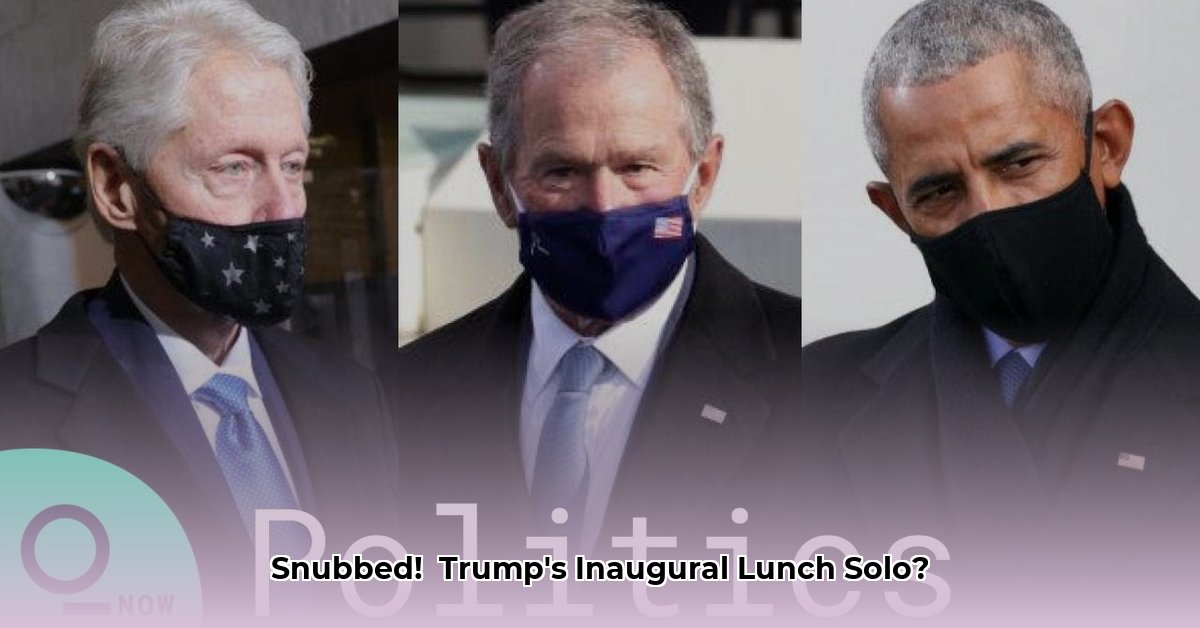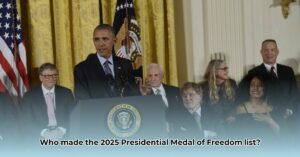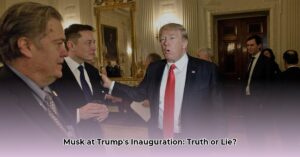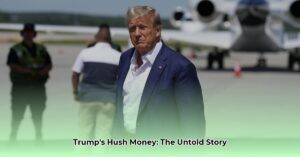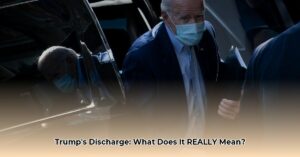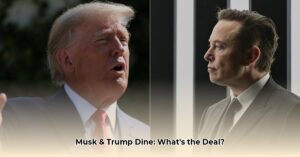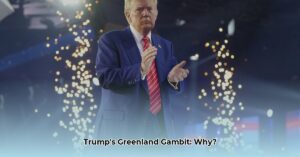The Inaugural Luncheon Snub: A Break with Tradition
In a striking departure from traditional inaugural protocol, former Presidents Barack Obama, Bill Clinton, and George W. Bush attended Donald Trump’s second swearing-in ceremony on January 20, 2025, but conspicuously skipped the customary luncheon. This unprecedented move, coupled with former First Lady Michelle Obama’s complete absence from any inaugural events and Hillary Clinton’s reversed stance from 2017, fueled speculation about the deepening political chasm in the United States.
Decoding the Absences: More Than Just a Missed Meal
The former presidents’ decision to forgo the luncheon transcended mere dietary preference; it resonated as a potent political statement. While their presence at the swearing-in fulfilled a constitutional obligation, their absence from the luncheon suggested a deliberate expression of dissent. This carefully calibrated move likely aimed to convey disapproval while upholding a veneer of institutional respect.
The Missing Invitation: An Administrative Error or Deliberate Snub?
Adding to the intrigue was the Bush team’s claim of not receiving a luncheon invitation. While improbable in the meticulously orchestrated world of presidential events, this assertion fueled conjecture. Was it a genuine oversight, a calculated snub, or perhaps a face-saving maneuver? This detail further underscored the strained relationship between Trump and his predecessors.
A Shift in Decorum: Contrasting 2017 and 2025
The 2025 inauguration presented a stark contrast to Trump’s first in 2017. Then, both Bill and Hillary Clinton attended the luncheon, a gesture signifying respect for the peaceful transfer of power, which Trump publicly acknowledged. The shift in 2025 suggests a significant deterioration in political decorum, likely reflecting the heightened polarization and animosity that characterized the intervening years.
A Cycle of Snubs: Trump’s 2021 Absence and its Repercussions
Trump’s own decision to skip President Biden’s 2021 inauguration adds another layer of complexity. This precedent of departing presidents boycotting their successors’ inaugurations arguably contributed to the 2025 absences. This raises questions about the future of presidential transitions and the potential erosion of respectful norms.
The Empty Seats: A Symbol of Political Fracture
The inaugural luncheon, historically symbolizing unity and bipartisanship, became a poignant representation of political division in 2025. The empty seats of former presidents underscored the fractured state of American politics, raising concerns about the future of presidential transitions and the potential for further departures from established norms.
Dissecting the 2025 Inaugural Luncheon Snub
The former presidents’ decision to skip the 2025 luncheon wasn’t a spontaneous act; it was a calculated political maneuver. This deliberate snub, amplified by Michelle Obama’s total absence, transcended a simple scheduling conflict; it symbolized the deep-seated animosity between Trump and his predecessors, exacerbated by the contentious 2020 election and Trump’s rhetoric.
The Bush team’s claim of a missing invitation, whether true or a strategic maneuver, further highlighted the strained relationships. Michelle Obama’s absence, given Trump’s past remarks about her family, added a personal dimension to the political narrative. Hillary Clinton’s shift from attending the 2017 luncheon to skipping the 2025 event underscored the escalating tensions.
Trump’s own absence from Biden’s 2021 inauguration may have set a precedent for this cycle of snubs, potentially contributing to the breakdown of traditional presidential decorum.
| Inauguration Year | Attended Swearing-in | Attended Luncheon |
|---|---|---|
| 2017 (Trump’s First) | Obama, Bush, Clinton | Obama, Bush, Clinton |
| 2021 (Biden’s) | Bush, Clinton, Obama absent | Bush, Clinton, Obama absent |
While strained relationships and political differences likely fueled the 2025 snub, other undisclosed factors may have played a role. Further research and potential future disclosures could shed more light on this complex political episode.
The Inaugural Luncheon: A Tradition Reexamined
The inaugural luncheon, a time-honored tradition dating back to 1897, symbolizes the peaceful transfer of power and the continuity of American democracy. Organized by the Joint Congressional Committee on Inaugural Ceremonies (JCCIC) since 1953, it represents a moment of unity and bipartisanship.
The 2025 luncheon deviation, with former presidents skipping the event despite attending the swearing-in, marked a significant departure from this tradition. This unprecedented move raises questions about the underlying political motivations and the potential implications for future presidential transitions.
The fact that Obama, Bush, and Clinton attended the official ceremony but skipped the luncheon suggests a deliberate political message. Their non-endorsement of Trump during the election further contextualizes their actions.
Hillary Clinton’s presence at the 2017 luncheon followed by her absence in 2025 signals a shift in approach, possibly reflecting heightened disapproval. Michelle Obama’s absence from both the 2025 inauguration and Jimmy Carter’s funeral, despite Barack Obama and Trump’s cordial interaction at the funeral, adds complexity. Her critical memoir and active campaigning against Trump offer potential explanations.
These departures from tradition raise questions about the evolving nature of presidential transitions and the impact of political polarization. Further research and analysis are needed to fully understand the long-term consequences of these shifts.
Exploring the Reasons Behind the 2025 Luncheon Snub
The former presidents’ absence from the 2025 inaugural luncheon likely stemmed from a confluence of factors, with strained relationships and political animosity playing a central role. The contentious 2020 election and Trump’s divisive rhetoric likely exacerbated existing tensions.
The Bush team’s claim of not receiving an invitation, regardless of its veracity, heightened the sense of deliberate distancing. Michelle Obama’s absence, given Trump’s past comments, may have been influenced by personal factors in addition to political considerations.
Hillary Clinton’s attendance at the 2017 luncheon followed by her absence in 2025 suggests a progressive deterioration in the relationship. The unusual absences likely symbolized more than mere personal preferences, communicating a clear message of dissent.
Trump’s own precedent-setting absence from Biden’s 2021 inauguration potentially played a role, potentially inspiring reciprocal acts.
While these factors offer plausible explanations, other undisclosed elements might have contributed to the complex dynamics at play. Further investigation may reveal a more comprehensive understanding of the motivations behind this significant political moment.
Presidential Inauguration Precedents: A Historical Perspective
Historically, presidential inaugurations have exemplified the peaceful transfer of power, a cornerstone of American democracy. Outgoing presidents typically participate in their successors’ inaugurations, symbolizing a smooth transition and respect for democratic values. However, Trump’s decision to skip Biden’s 2021 inauguration marked a notable break from this 150-year-old tradition, raising questions about the growing political divisions in the country.
The 2017 inauguration, when Trump assumed office, also presents an intriguing case study. While former presidents attended the swearing-in, conflicting accounts of the subsequent luncheon create ambiguity. Michelle Obama’s presence at the 2017 swearing-in, contrasted with her later absences, suggests evolving dynamics and possible pre-existing tensions.
Considering a hypothetical 2025 Trump inauguration, speculation about potential attendance patterns further highlights the increasing polarization. The symbolic implications of these choices warrant further examination.
These inaugural traditions hold significance beyond mere formality. They embody the essence of American democracy – the peaceful transfer of power. Deviations from these established customs raise concerns about the state of the political climate and potential long-term consequences. Political scientists and historians continue to analyze these trends, offering varying interpretations about the influence of political polarization and individual personalities. Further research is crucial to fully comprehend the implications of these evolving traditions.

